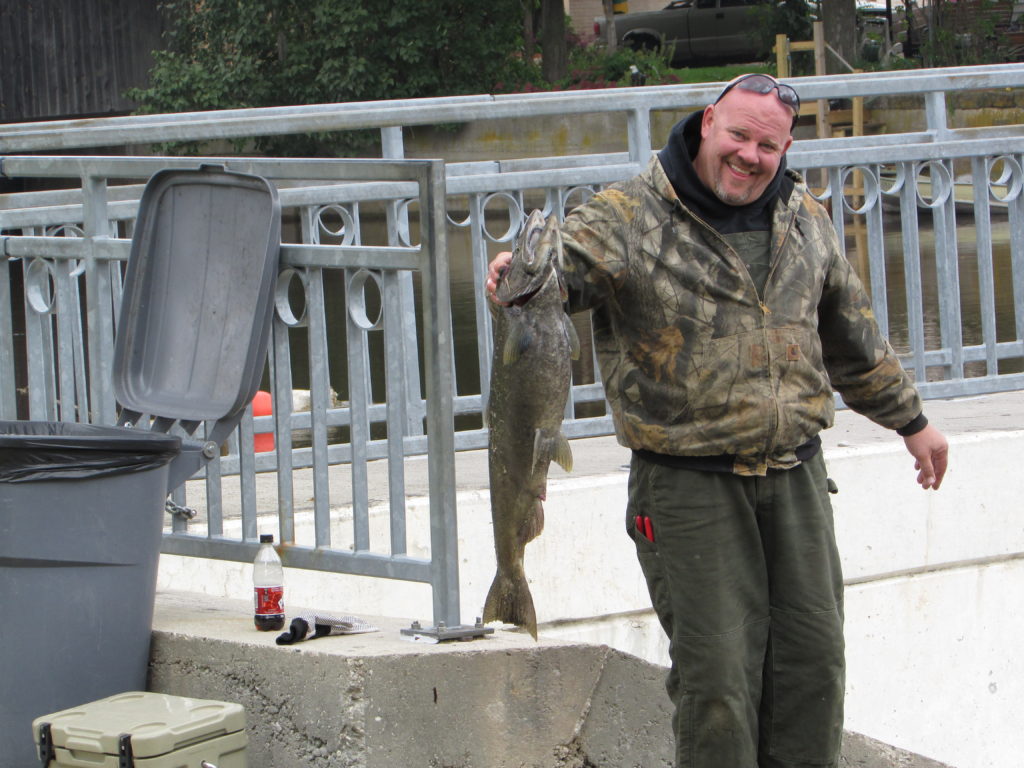BESADNY ANADROMOUS FISHERIES FACILITY REPORT
FISHING WISCONSIN
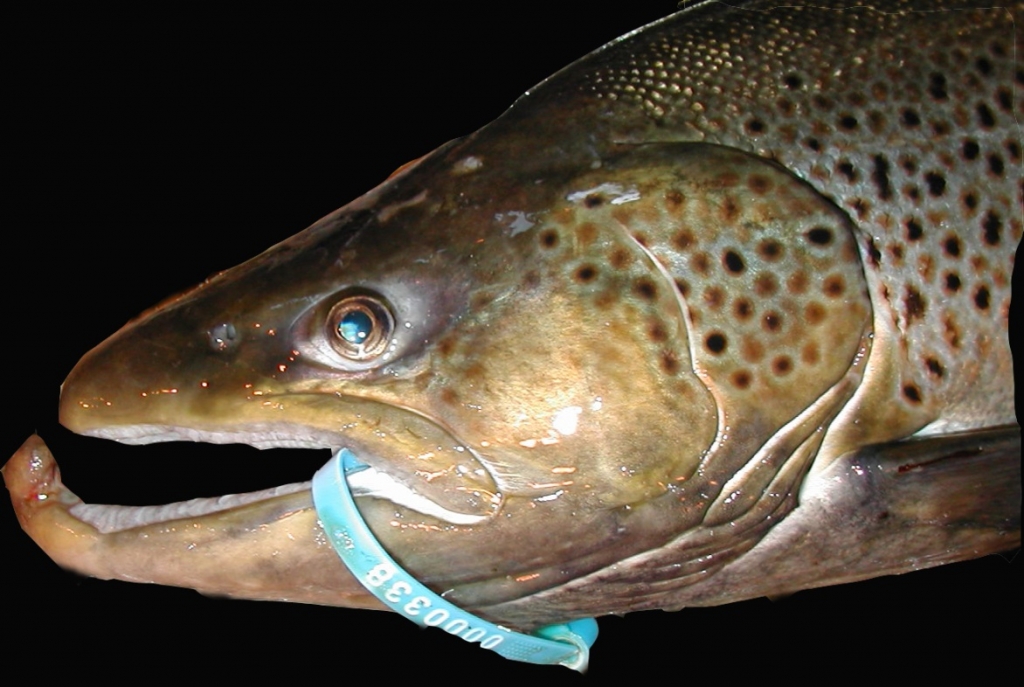
The following information is the salmon and trout processing information for our facility on the Kewaunee River. We will post new information to this site every TUESDAY at 4:00 pm from March through April and October through early November. Depending on water conditions and the number of fish in the weir, fish are usually processed on Wednesdays.
In addition, you can read the latest fishing report on our Lake Michigan Outdoor Report page.
Besadny Anadromous Fisheries Facility
BAFF seeforellen gamete collection – Seeforellen brown trout are the only wild strain of brown trout that are stocked into Wisconsin’s Great Lakes. Beginning in late October, WDNR crews use electroshocking boats on several rivers on Lake Michigan to collect seeforellen adults that are identified by a unique fin clip. Adult seeforellen are transferred to Besadny Anadromous Fish Facility where they are held in ponds. Once a week from, mid-November to mid-December, staff collect eggs and milt from ripe adults. Fertilized eggs are transferred to the Wild Rose Hatchery. Fish that are not yet ready to spawn are returned to the ponds to be spawned at a later date until the goal of 1 million eggs is collected. Each year, approximately 400,000 seeforellen are stocked into Wisconsin waters of Lake Michigan (300,000) and Lake Superior (100,000).
History of the seeforellen strain in Wisconsin: The first seeforellen brown trout were stocked in Wisconsin in 1991. WDNR obtained eggs from New York in late 1989-early 1990. The goal was to promote an extended trophy fishery, as seeforellen tend to live a year or two longer and spawn a month or two later in the fall compared to domestic strains of brown trout. The current Wisconsin state record brown trout for outlying waters is a 41 lb. 8 ounce seeforellen that was caught in southern Lake Michigan near Racine in 2010 by Roger Hellen.
Muskellunge – Since 2010, Wisconsin DNR has worked cooperatively with Kewaunee County to raise Great Lakes Spotted Musky at Dana Farm. Each May, nets are set in the Fox River to capture spawning Musky. The captured Musky are measured, weighed, checked for a fin clip and a PIT Tag, spawned and released back into the Fox River. Fertilized eggs are disinfected, water hardened and transported to Dana Farm. In a small building next to the hill pond, eggs are placed in hatching jars and allowed to hatch. Following hatching, Musky are held in the building until they have consumed their yolk sac and then are stocked into the outdoor ponds. While in these ponds, Musky are fed bait fish by the truckload causing rapid growth. By the end of September, they average nearly 12 inches in length. At this time, the Musky are seined from the ponds, fin-clipped to denote they were stocked as fingerling, loaded into trucks and hauled to stocking locations around the Bay.
The hill pond has been in use since 2010, while a newly renovated road pond produced its first Musky in 2015. The renovation of the road pond was achieved through the generous donations of many Musky clubs and the cooperation of DNR and Kewaunee County. These ponds will continue to raise Musky for stocking into Green Bay until either a peer-reviewed disinfection protocol is developed allowing fish to be safely moved from the Fox River to Wild Rose Hatchery or the inland brood lakes produce disease-free eggs in sufficient numbers needed to support the program.
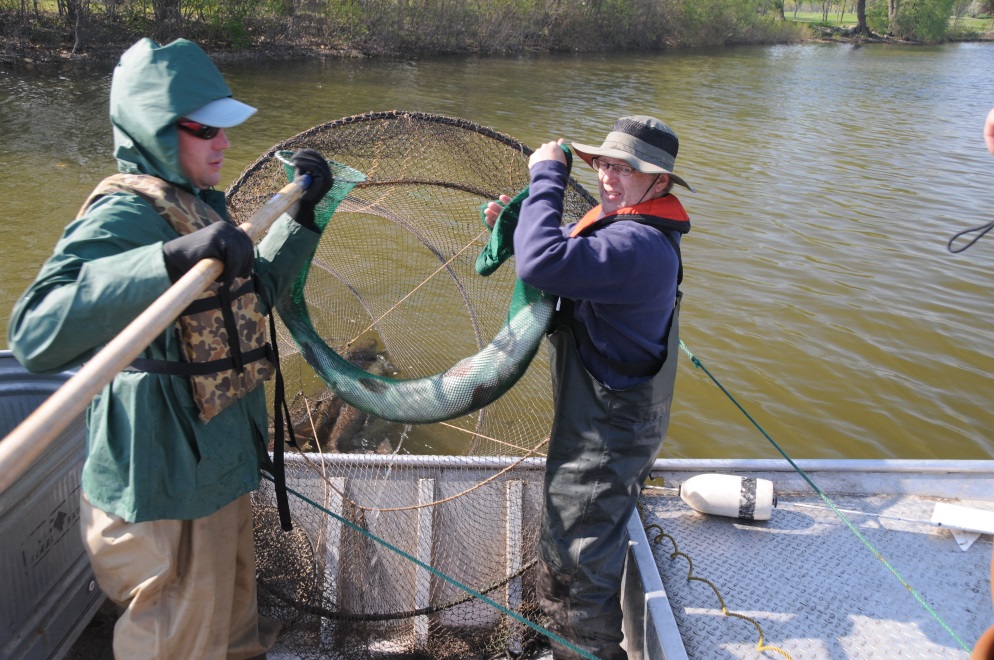
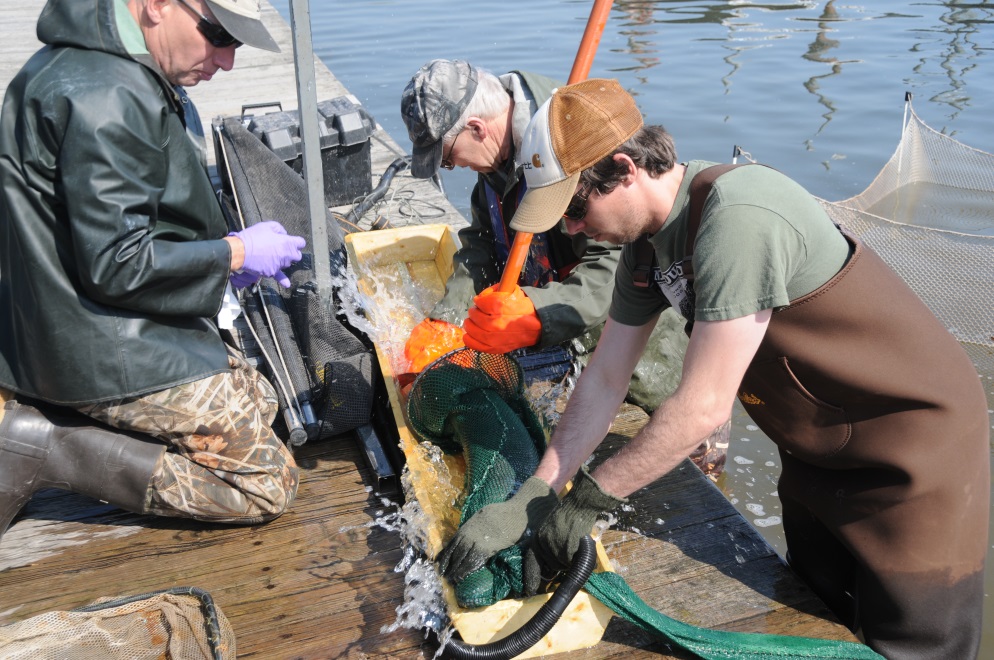
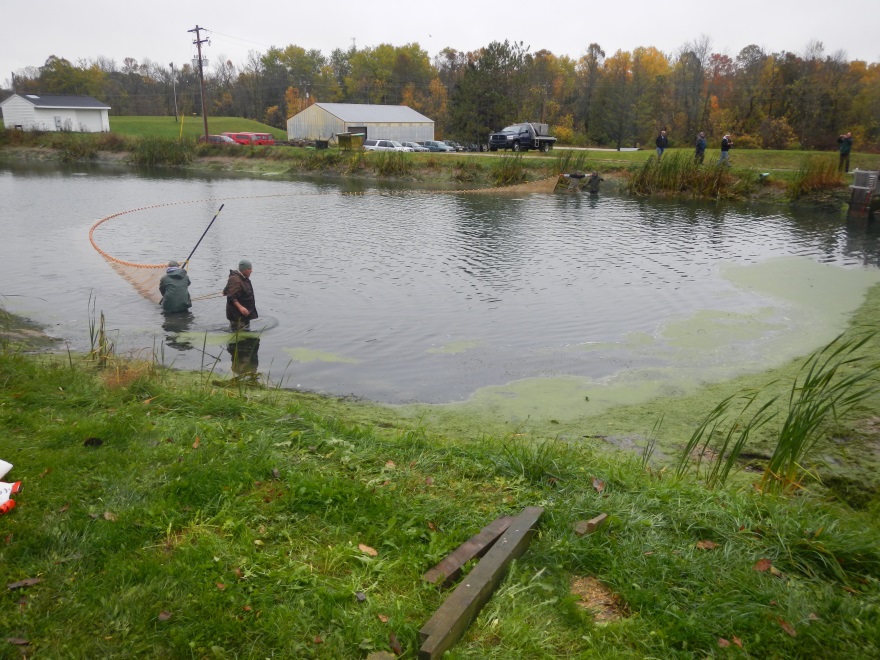
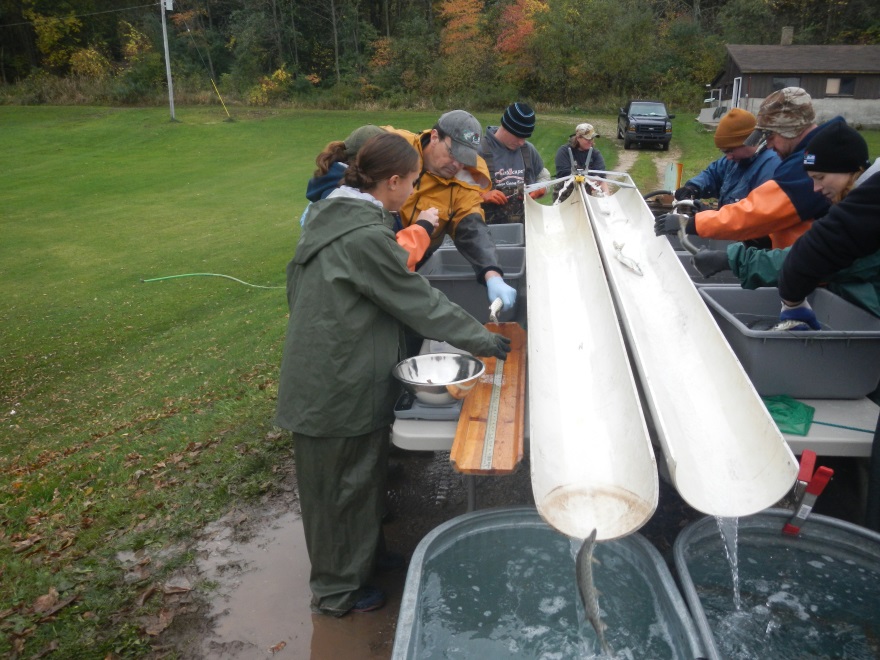
Besadny Anadromous Fisheries Facility Report for October 6, 2020:
Two salmon processing days occurred so far this fall at the Besadny Anadromous Fisheries Facility in Kewaunee on October 2 and 6. Numbers of Chinook salmon processed for data and removed from ponds each day respectively were 200 and 100 (total 300). Numbers of Coho handled each day were 64 and 54 (total 118). Coho salmon so far have been sorted and kept in holding ponds for spawning at a future date. The next processing day at BAFF will tentatively be Friday October 9 (depending on how many Chinook swim upstream to the facility) with additional spawning to occur on subsequent Tuesdays and Fridays throughout October. Considering the pandemic, the BAFF facility including road access will be closed to the public during spawning operations.
| DATE: Oct 2 and 6 of 2020 | RIVER TEMP: | |||
| Rainbow Trout | Chinook Salmon | Coho Salmon | Brown Trout | |
| Total Captured | 9 | 300 | 118* | 0 |
| Passed Upstream | 0 | 0 | 0 | 0 |
| Taken to Hatchery | 0 | 0 | 0 | 0 |
| Spawned at Facility | 0 | 59 females | 0 | 0 |
| Egg Take | 0 | about 300,000 | 0 | 0 |
(*Note: These Coho numbers should be viewed as preliminary, because fish can jump between holding ponds and thus some Coho could have been tallied more than once. Final numbers won’t be available until Coho are processed for data and removed from the ponds.)
You may also like
-
Evers Administration And Ducks Unlimited Announce New Wetland Project In Brillion State Wildlife Area
-
Mad Scientist Tackle coats Ned Head Jig with brilliant UV coatings to achieve maximum radiance
-
Playing the Short Game
-
Help Amplify ATV/UTV Safety Messaging Ahead Of Holiday Weekend
-
DNR Reminds Anglers To Report Any Catches Of Round Goby In Winnebago System
